Best DJ headphones 2025: Booth-ready choices from budget to pro-level
Our expert pick of reliable headphones to suit any type of DJ, including options from Sennheiser, Technics and Pioneer
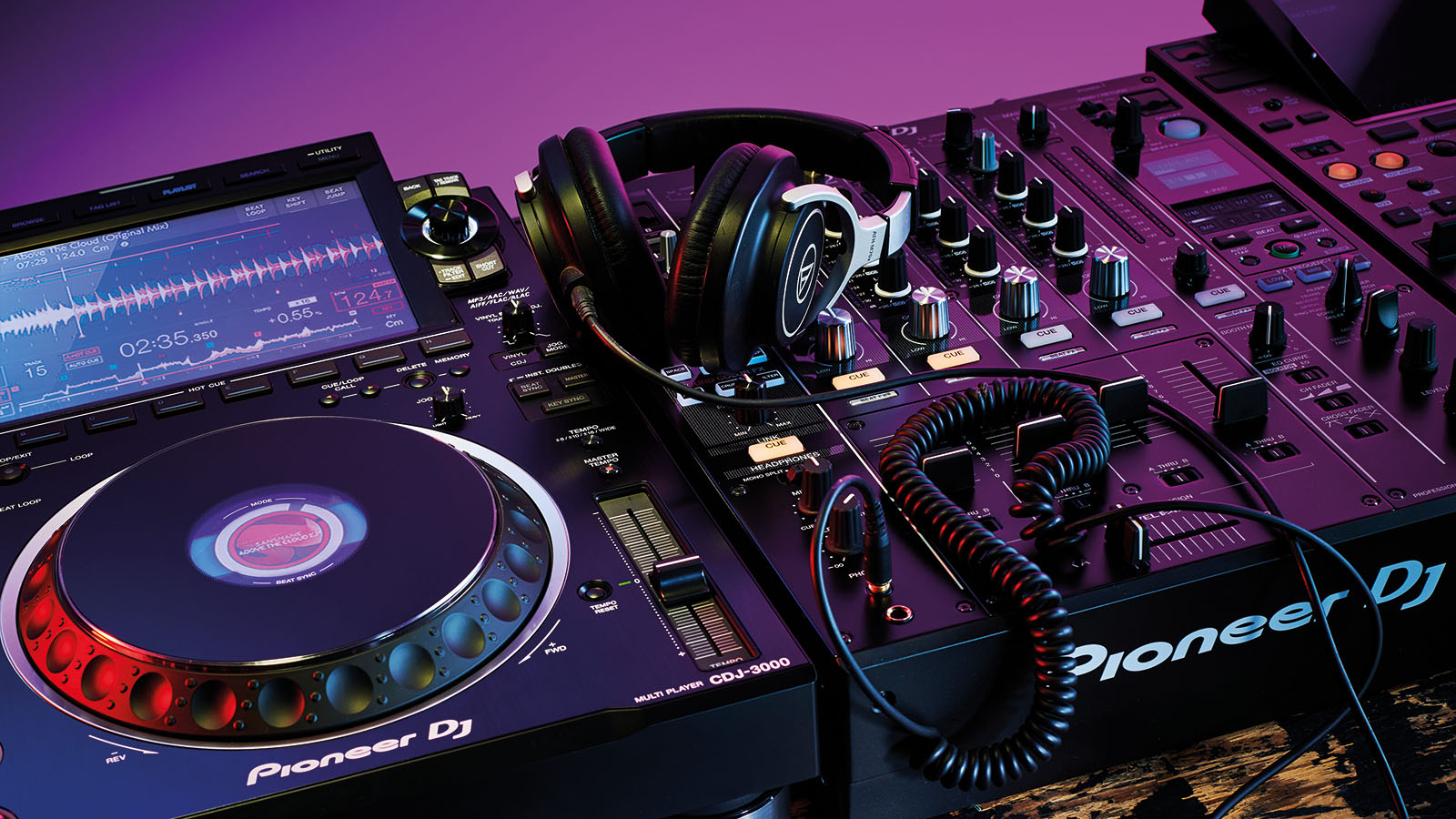
It's worth taking your time when deciding which are the best DJ headphones for you; besides the fact they're likely going to get lots of use at home, there's no doubt that quality headphones can literally be the difference between a good and a bad gig. A quality pair of headphones will enable you to do your job to the very best of your ability. At the most fundamental level, a DJ needs to be able to clearly monitor the music before it's being played and when it's being mixed, and obviously, a decent set of headphones is absolutely key for this.
Headphones can become more than just a tool for a DJ; they can be a trusted companion. In the most intense club or rave situations, if you can rely on your headphones to provide a clear understanding of the music while hopefully reducing some of the external noise, you'll likely have a successful gig. But if you can't hear what you're doing properly, you're going to have a tough time.
The DJ headphone market covers a huge range of budgets, styles, quality, and specifications, all of which can initially appear quite daunting. Luckily, our Best DJ Headphones Guide can help you choose the perfect pair for your needs and budget. As with most DJ gear, reflecting on what your requirements are can really help narrow down the many available options. Are you planning on using your new headphones to regularly play club gigs, stream your set online, or practice at home? Are durability and reliability the most important things to you, or is it sound quality or budget? If you're going to use them regularly for extended sessions, then comfort has to be a consideration, too.
Our expert team, with their extensive knowledge and experience, have carefully selected and tested some of the very best headphones currently on the market across a range of budgets. We've also included some useful buying advice at the bottom of the page to help you make an informed decision, and there's a quick overview of our top choices, too.
Currently, our top choice is the versatile Sennheiser HD 25. We love their rugged design and stellar audio performance. Continue on to read more about our other picks.
Quick list
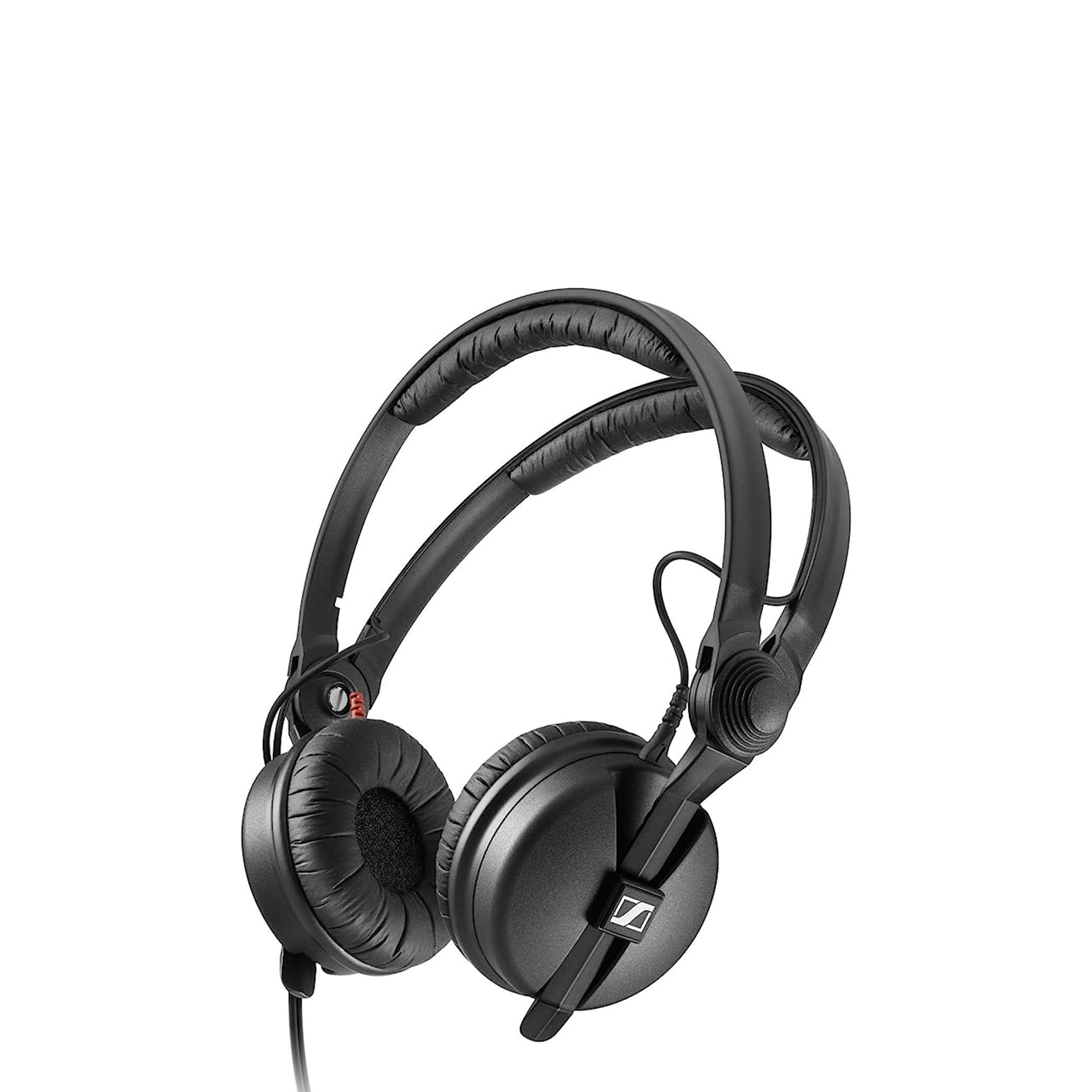
The Sennheiser HD 25 is as close as you’ll find to a universally well-loved set of cans. They are designed specifically for monitoring, providing high levels of attenuation over external noise and the ability to cope with extreme volumes with ease.
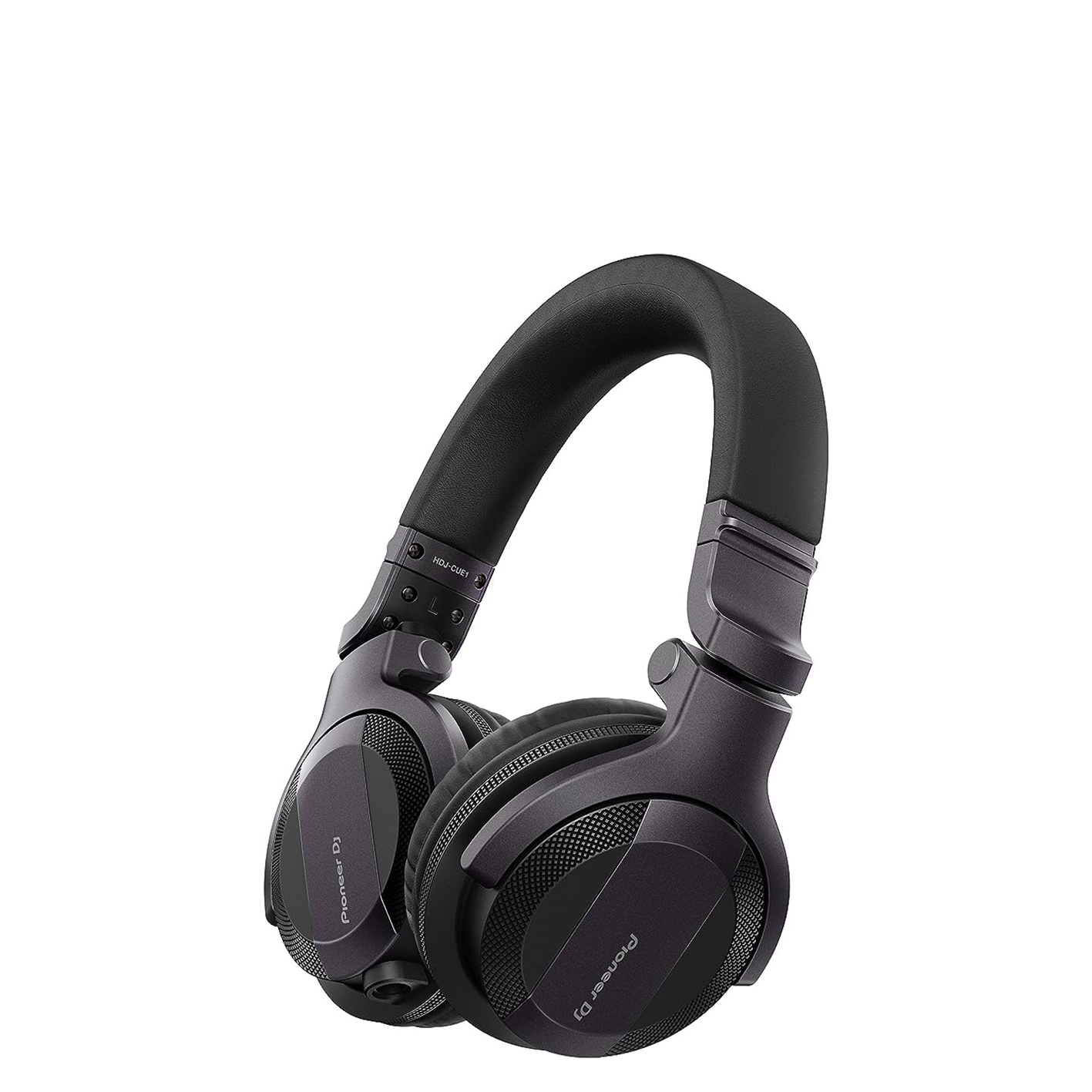
Pioneer DJ’s budget headphones take many of the winning design choices from the brand’s more expensive HDJs and bring them down to a price point to suit beginners and cash-strapped DJs. They’re very impressive for a set of entry level DJ headphones.
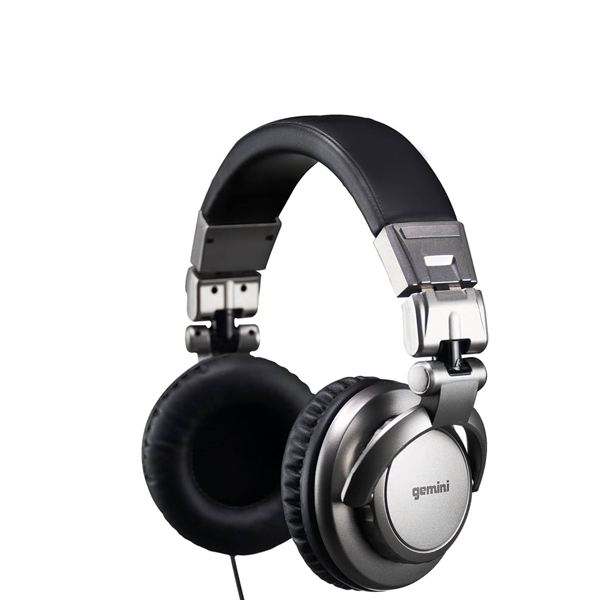
Their lightweight and on-ear design means they’re a comfortable option for those who may be unfamiliar with extended headphone use. The DJX-500s also boast a broad frequency response and strong drivers for the price, which, together with their closed-back ear cups, makes them more than up for the DJing job.
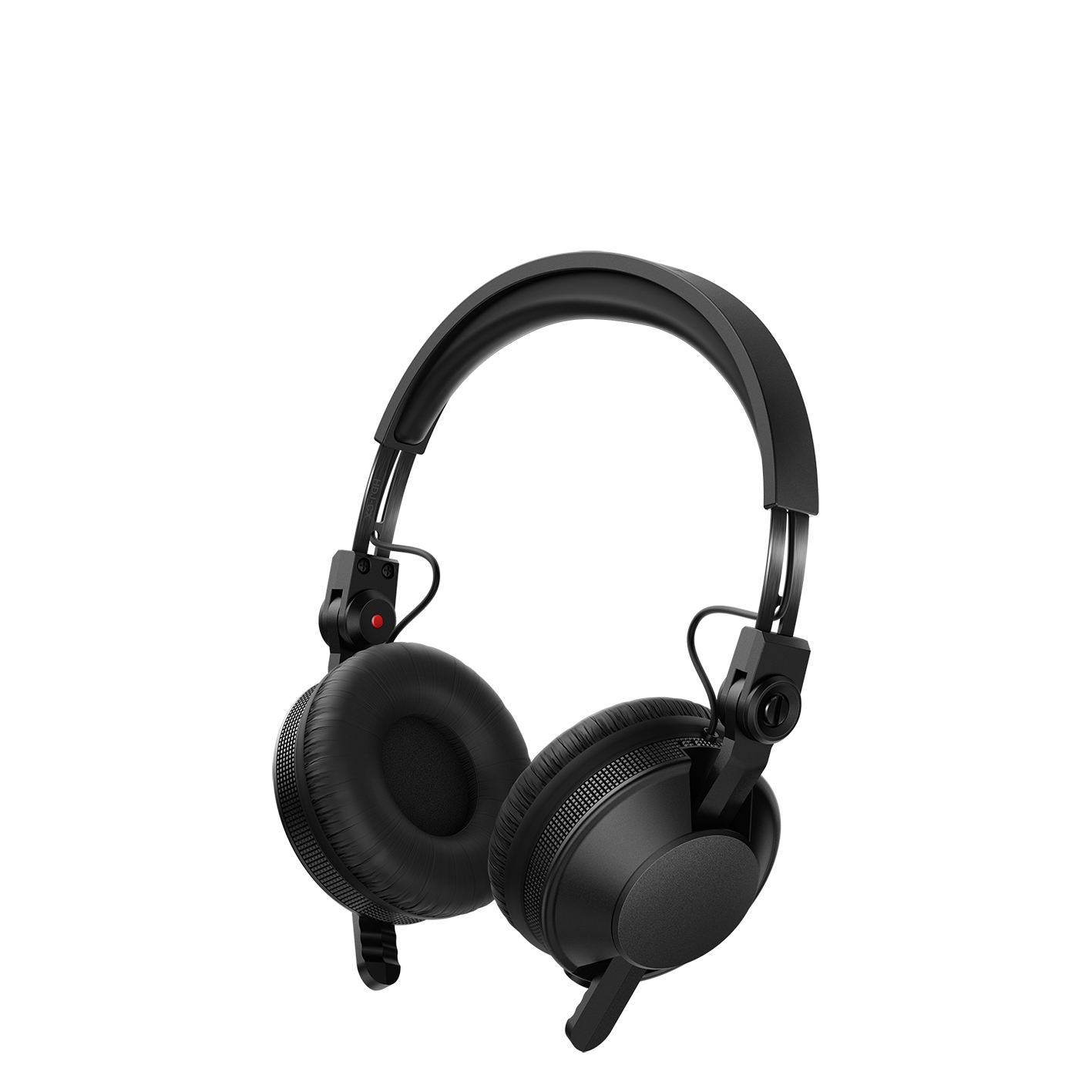
The HDJ-CXs are designed to be lightweight but robust, making them ideal for DJs regularly shifting them on and off the ear. They also feature easily replaceable cables and accessories, which should extend their lifespan, especially for regularly gigging DJs.
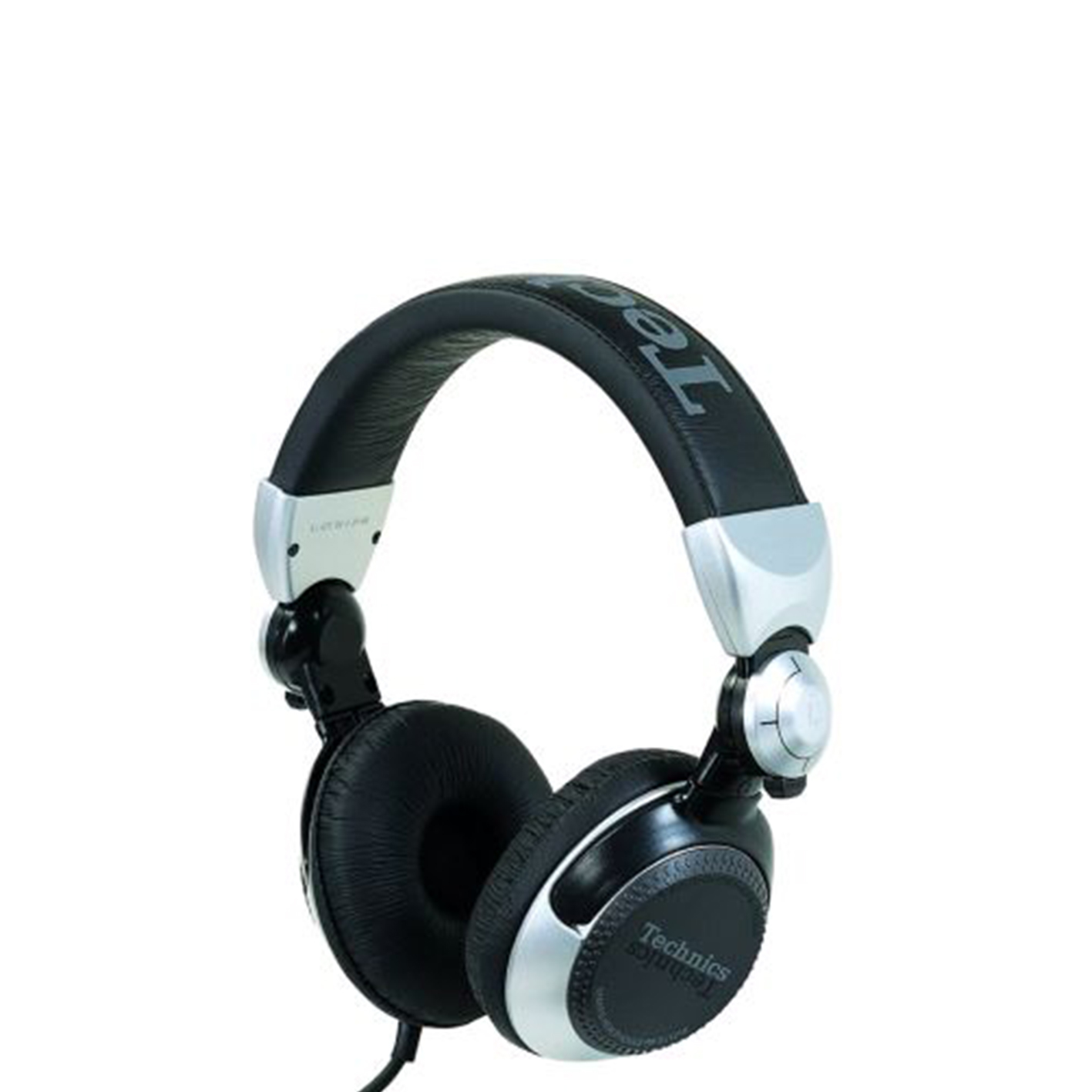
The Technics RPDJ1210 favour robust design and strong build quality over fancy aesthetic touches. And it’s in the trenches where they excel, with a number of features designed specifically for professional DJ use, as you’d expect from one of the biggest brands in the DJ world.
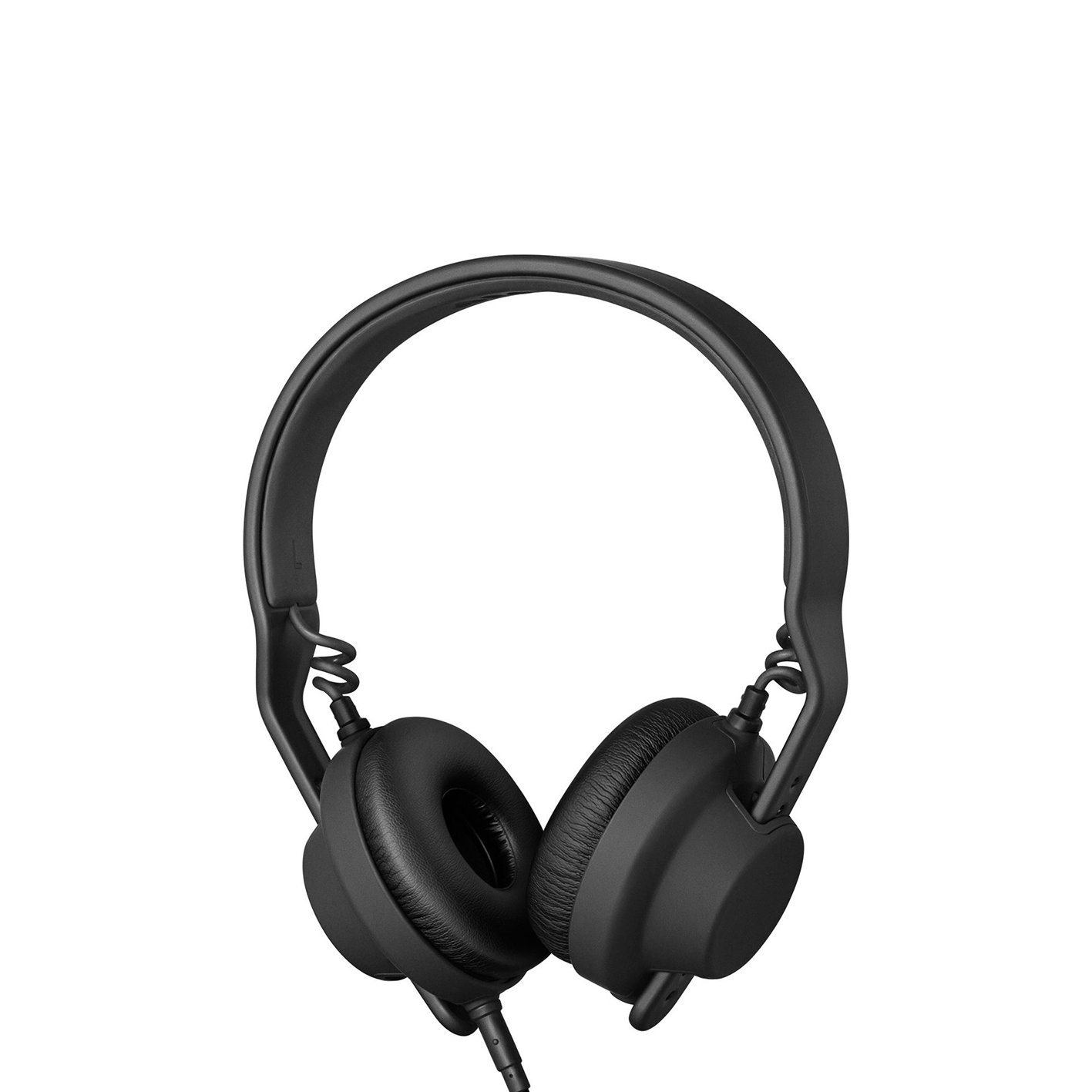
The real hook with this range comes in your ability to design your own dream setup. From the types of drivers employed to the headband and cable – everything is up for customising here, depending on your requirements. There are, however, a selection of models available as ‘presets’ if you’re not interested in the process of choosing your own.
Load the next 4 products... ↓
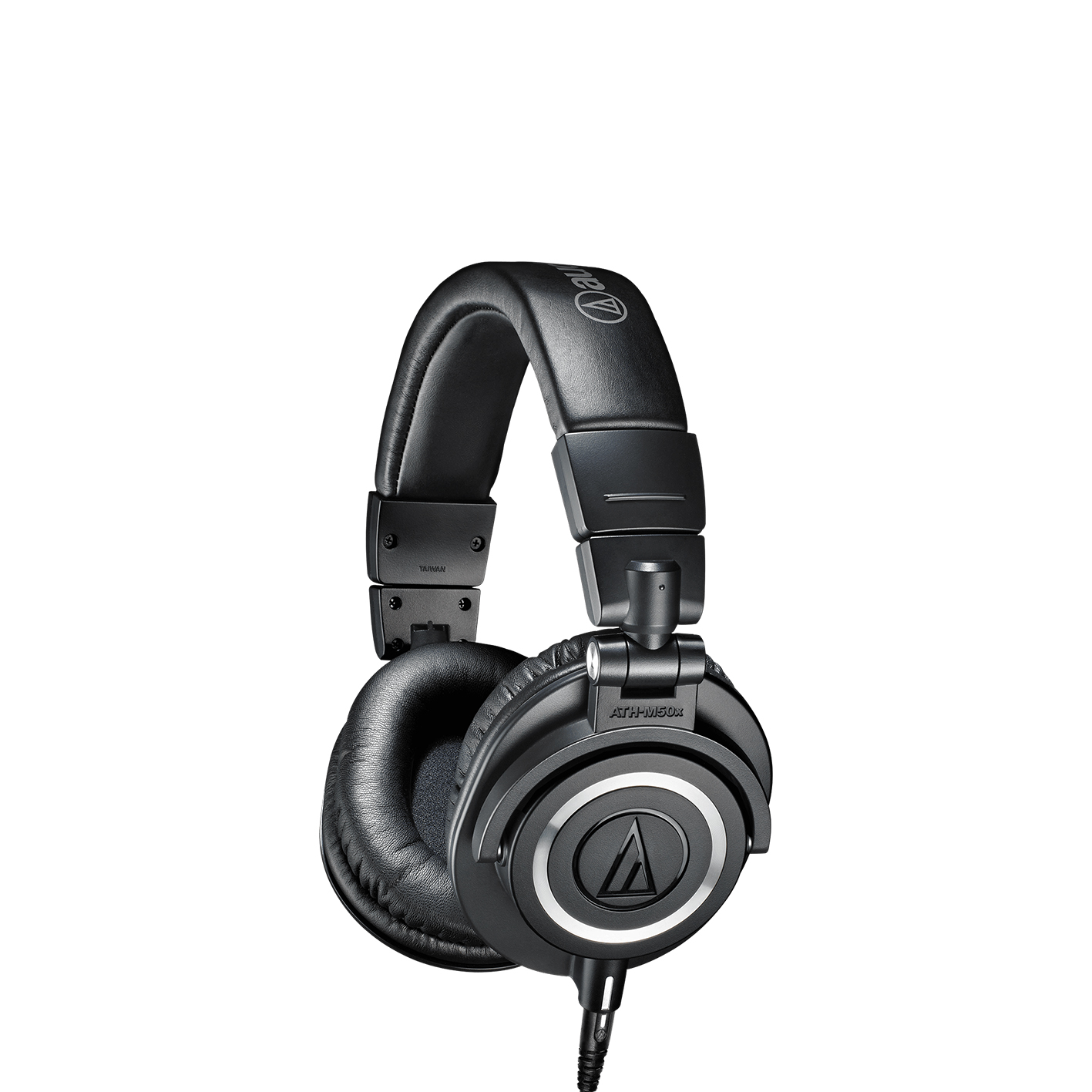
Audio-Technica is well-respected in the DJ world, and the ATH-M50x’s do a great job of showing why. They’re well-built headphones, for a start, which look like they could survive years of service before they give out. We also liked the over-ear design which, when combined with the closed back, means isolation from external noise is great.
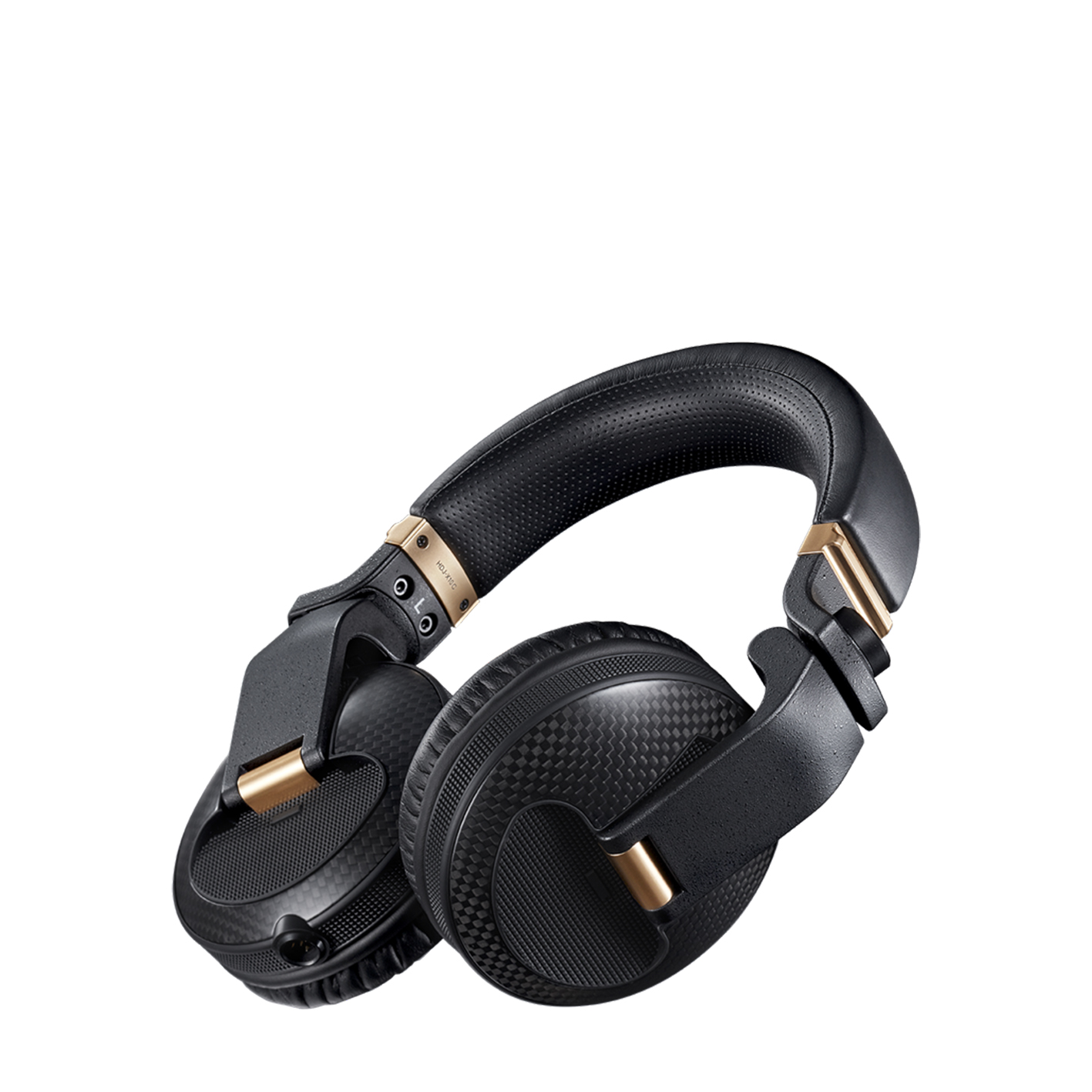
The Pioneer DJ HDJ-X10 are over-ear closed back headphones with what Pioneer claims is the widest frequency range in any DJ-specific headphones. Quite a claim, but we can attest to the great listening experience we had from them. The highs were high, the lows were low, and everything was a balanced and clear as you’d hope.
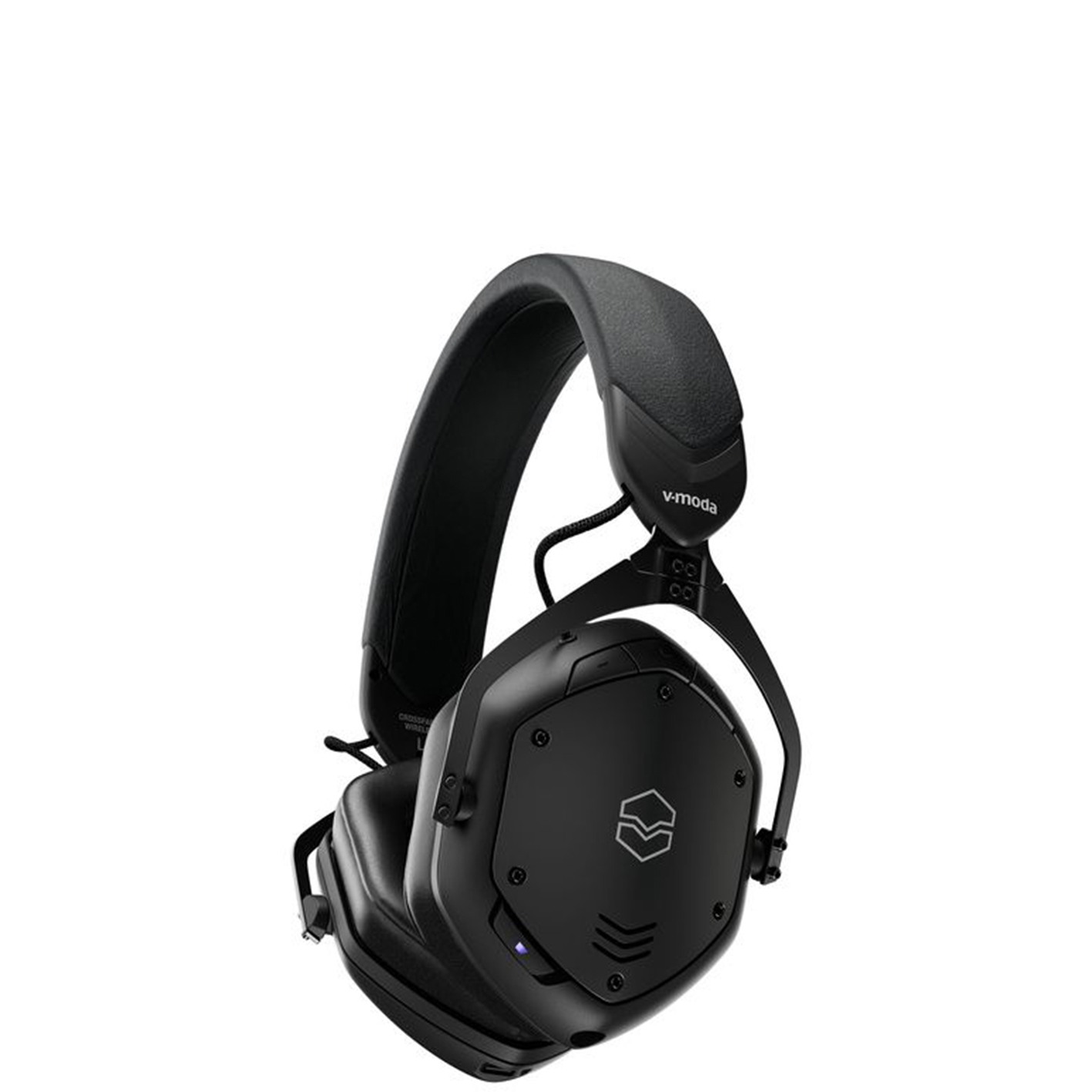
The Crossfade headphones provide a ‘best of both worlds’ approach to headphone monitoring. On one hand, the Crossfades can be wired to provide zero latency feedback, and a wide frequency range, meaning they have the reliability needed for tight beat mixing or music production. On the other hand, they boast Bluetooth so can double up as ‘regular’ headphones for the walk to and from the studio. Ideal.
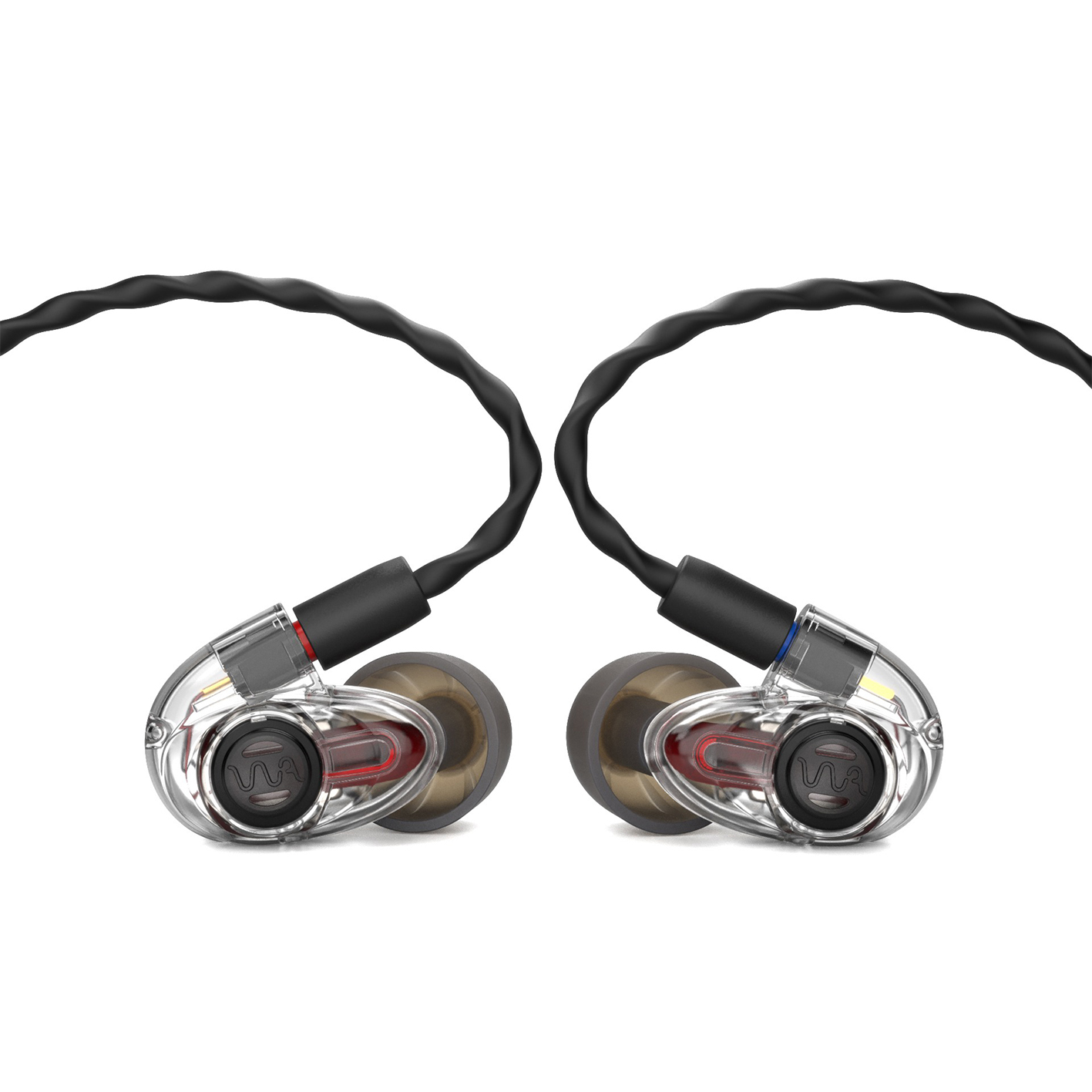
The Westone Audio AM Pro X 10 in-ear monitors warrant inclusion on this list thanks to their passive ambience functionality. Essentially, thanks to some clever filtering, the AM Pro X 10s do let in some noise, so you get the best of both worlds. A clear feed of what you’re playing, and then an idea of how the crowd is hearing it too.
Best overall
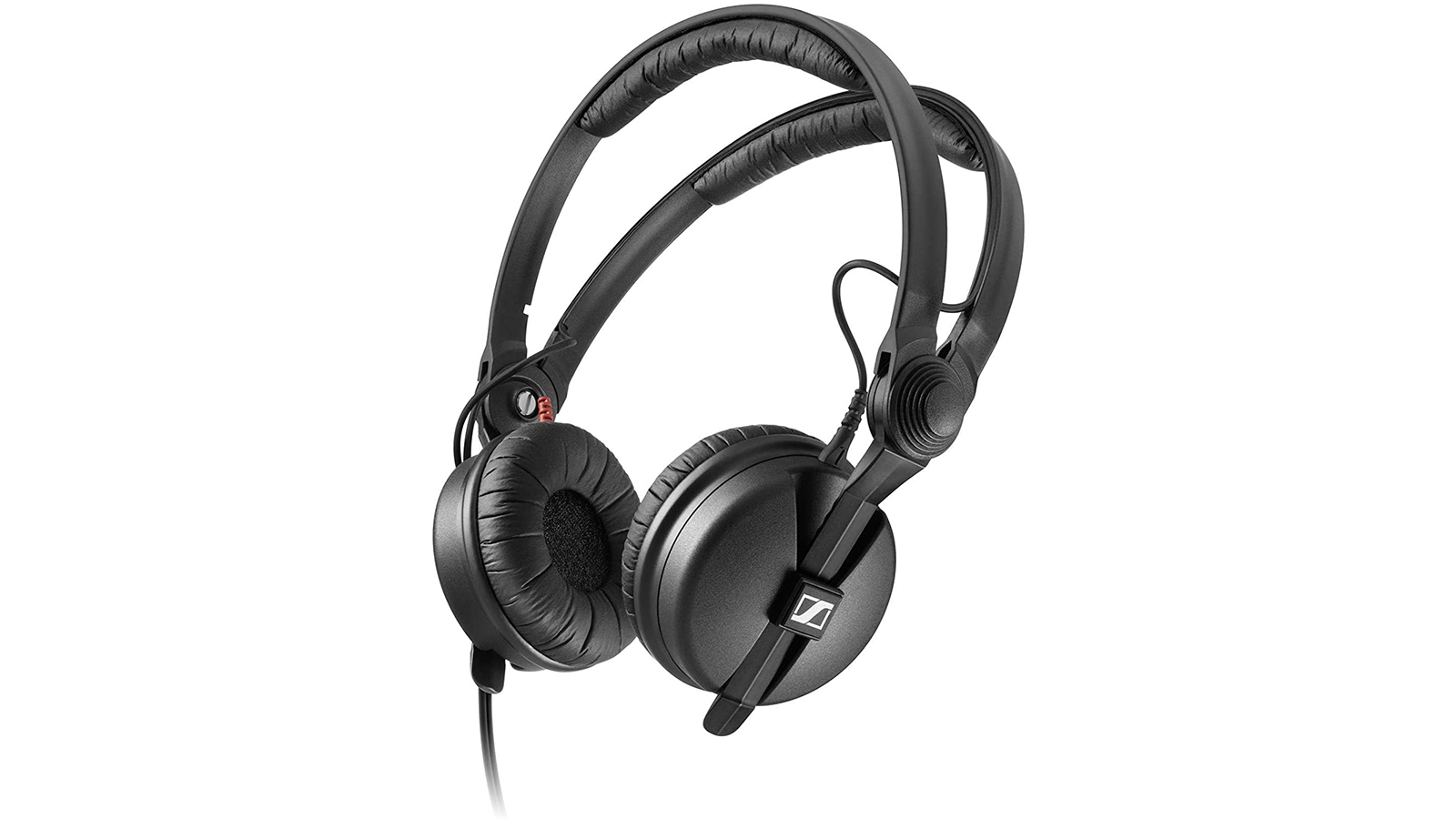
Specifications
Reasons to buy
Reasons to avoid
While everyone will have their own personal preferences and tastes, the Sennheiser HD 25 is as close as you’ll find to a universally well-loved set of cans. The HD 25s are designed specifically for monitoring, providing high levels of attenuation over external noise and the ability to cope with extreme volumes with ease.
They feature a rotatable capsule for single-ear listening, and while the leatherette pads aren’t the most comfortable in the world, they certainly perform better than others in the same price bracket.

"Great for listening, DJ-ing, location recording and tracking, but perhaps not the best choice for mixing on, the HD 25’s are Senn-sational, all-round workhorse headphones that you should be able to rely on for years to come." Read the full Sennheiser HD 25 review
Best budget option
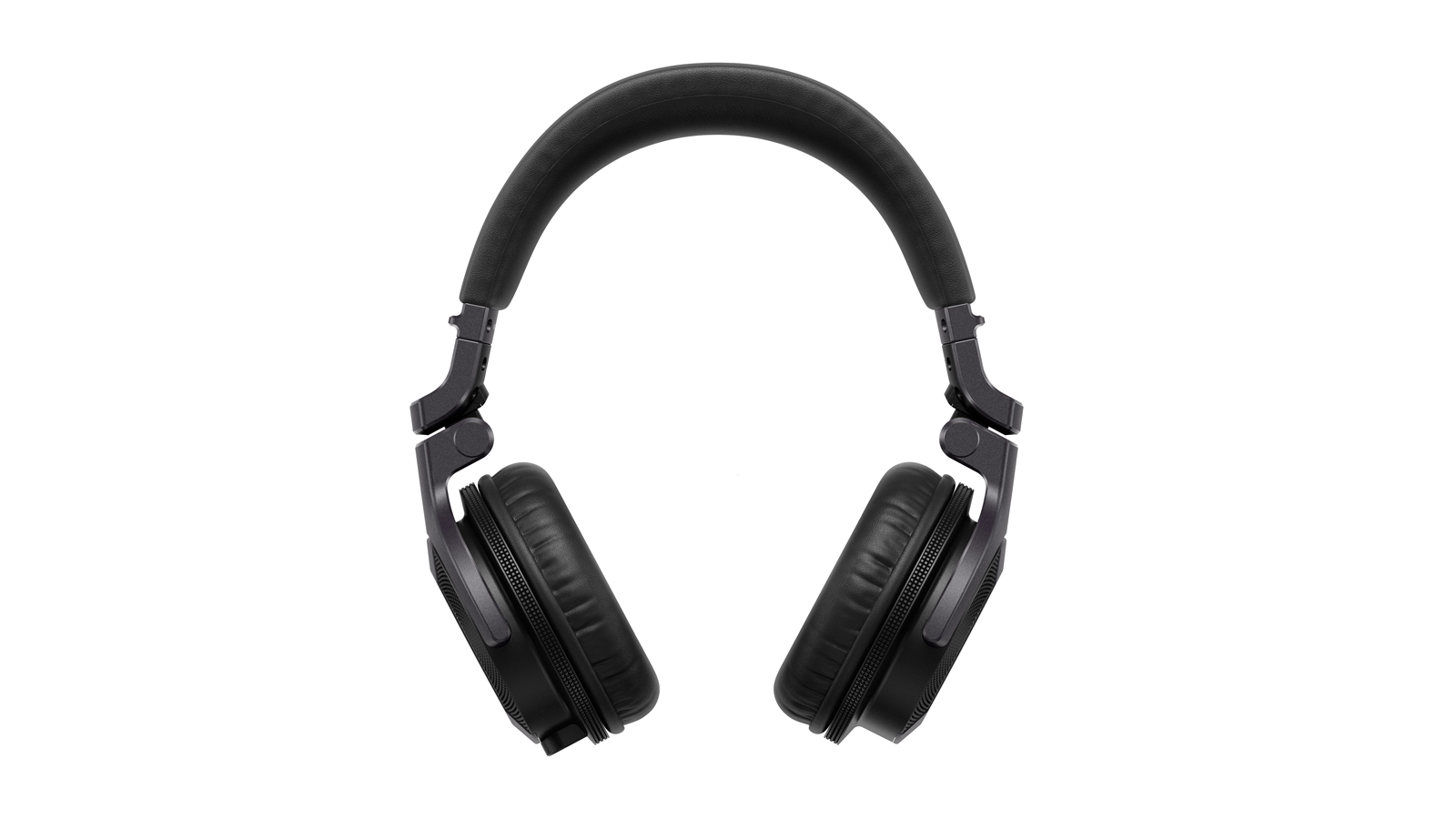
2. Pioneer DJ HDJ Cue1
Our expert review:
Specifications
Reasons to buy
Reasons to avoid
Pioneer DJ’s budget headphones take many of the winning design choices from the brand’s more expensive HDJs – feature elsewhere in this guide – and bring them down to a price point to suit beginners and cash-strapped DJs.
While the sonic specs, such as impedance and frequency response, don’t quite match Pioneer’s top-end cans, they’re still very impressive for a set of entry level DJ headphones. Sonically, these outstip many of the more expensive pairs on the market.
The thing we like most about the Cue1s though is their styling. Many budget sets of DJ headphones tend to look cheap and toy-like – HF125s we’re looking at you – but the Cue1s have a stylish and pro-feeling design, which can be customised by purchasing replacement coloured ear pads and cables. The sharp look is matched by some DJ-friendly design touches, such as the lightweight, foldable body and detachable cables.
If you want to go fully wireless, Pioneer also produces a Cue1 BT model offering Bluetooth functionality for around £30/$30 more.
Best for beginners
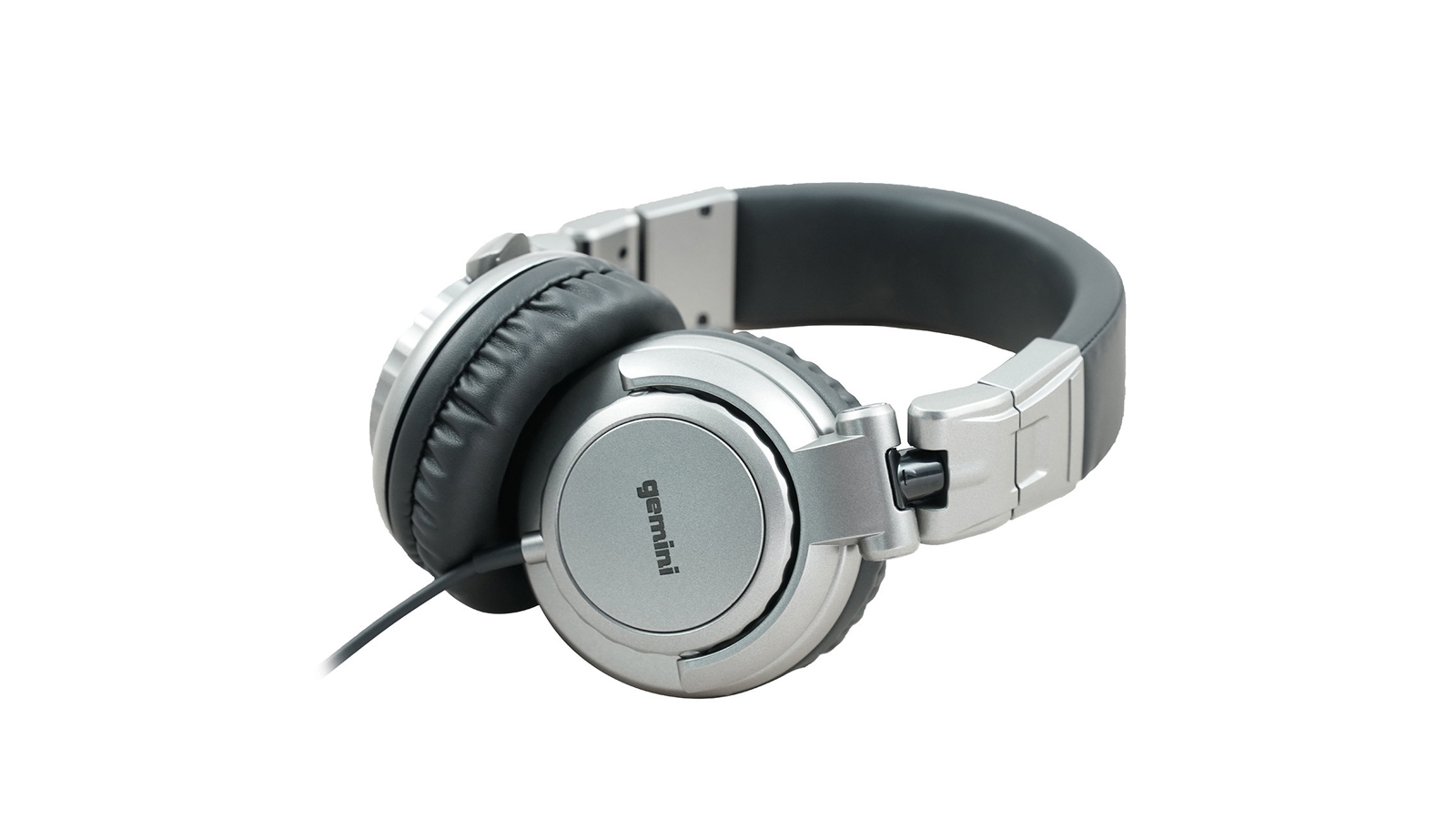
3. Gemini DJX-500 Closed-Back DJ Headphones
Our expert review:
Specifications
Reasons to buy
Reasons to avoid
The Gemini DJX-500s, in either black or silver, are a strong choice for a beginner's set of DJ headphones, with a decent enough sound and a professional look at a bargain-level price.
Their lightweight and on-ear design means they’re a comfortable option for those who may be unfamiliar with extended headphone use. The DJX-500s also boast a broad frequency response and strong drivers for the price, which, together with their closed-back ear cups, makes them more than up for the DJing job.
Our only honest criticism is that they feel a little light, but at this price, entry-level headphones will inevitably contain some design compromises. That aside, for a super-cheap set of DJ headphones, these are hard to beat.
Best lightweight option
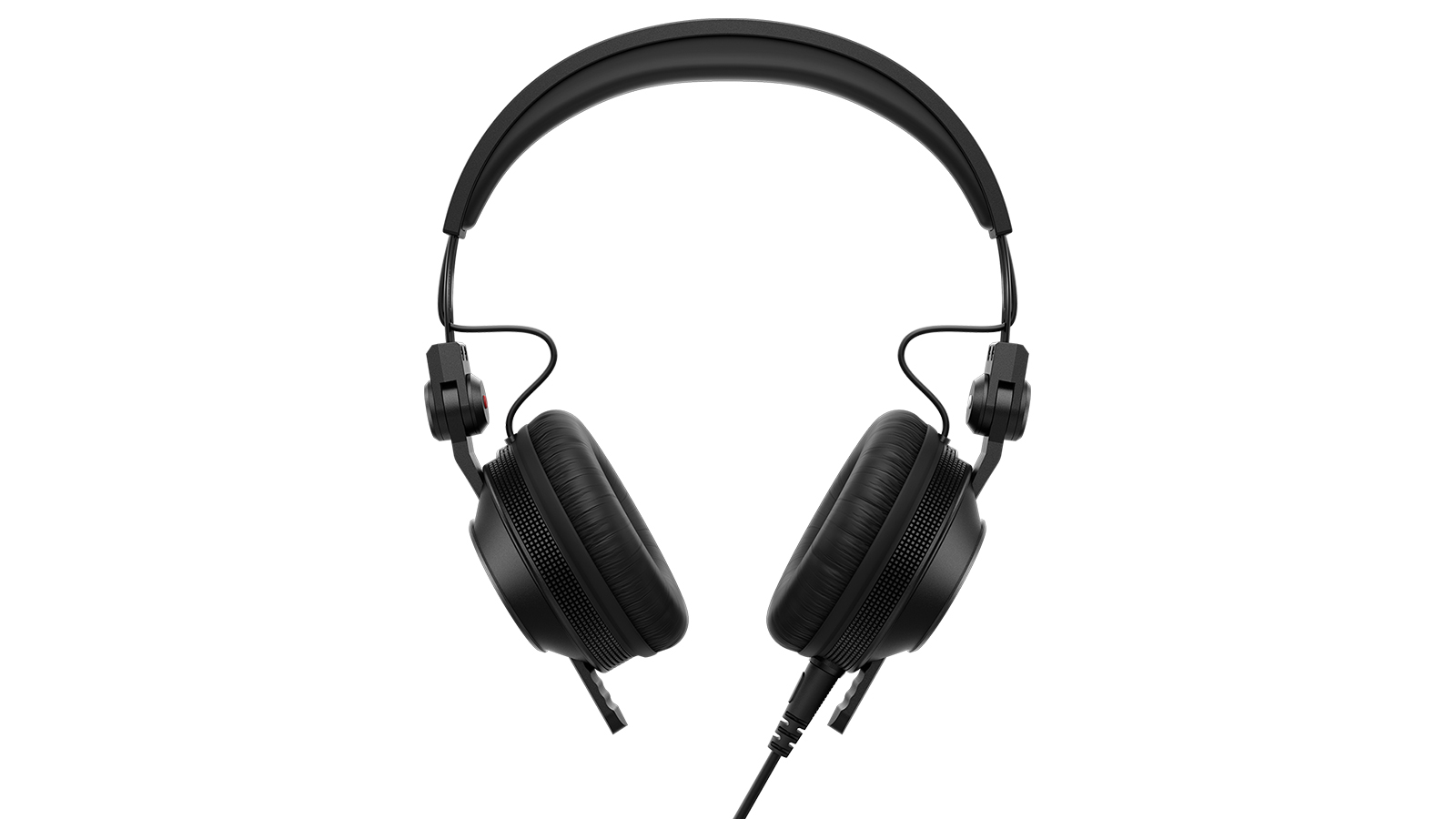
4. Pioneer DJ HDJ-CX
Our expert review:
Specifications
Reasons to buy
Reasons to avoid
Given their look, it doesn’t take an expert to work out that the HDJ-CXs (£120) are Pioneer’s answer to Sennheiser’s industry-leading HD25s. Much like that widely-used set of DJ cans, the HDJ-CXs are designed to be lightweight but robust, making them ideal for DJs regularly shifting them on and off the ear.
They also feature easily replaceable cables and accessories, which should extend their lifespan, especially for regularly gigging DJs. That said, they’re not quite as ‘rebuildable’ as the HD25s.
Where Pioneer believes its cans have the edge over the competition is in the sound, as well as the level of comfort over long periods of use. Whether that’s enough to topple the champs in this sector remains to be seen!
Best for durability
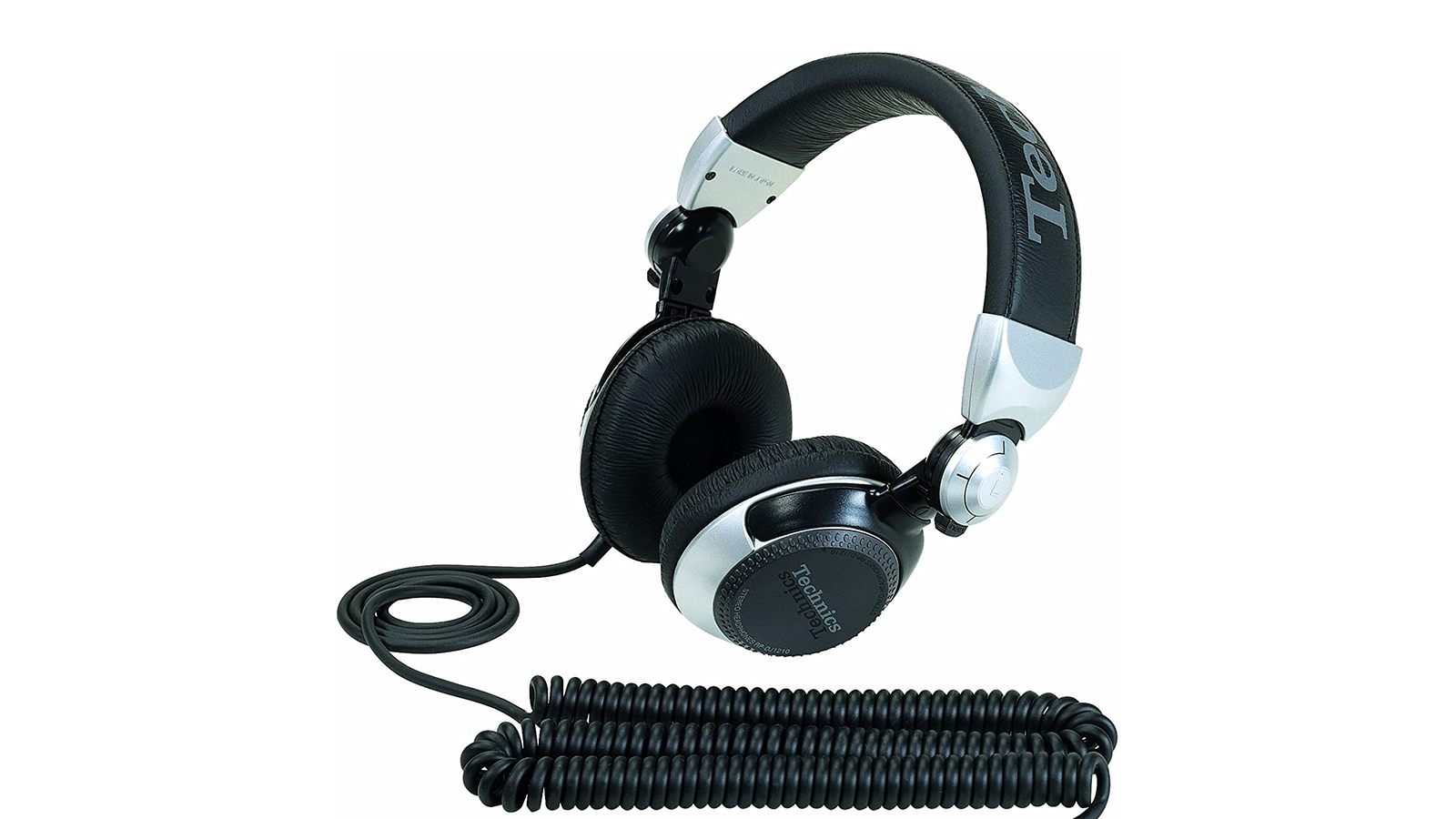
5. Technics RPDJ1210
Our expert review:
Specifications
Reasons to buy
Reasons to avoid
While they might look like something from the last century, the Technics RPDJ1210 favour robust design and strong build quality over fancy aesthetic touches. And it’s in the trenches where they excel, with a number of features designed specifically for professional DJ use, as you’d expect from one of the biggest brands in the DJ world.
We like the coiled cable, which means you have more room to roam around the booth, while making them resistant to perspiration – or, sweat proof – means they’re ideal for work in hot, busy venues.
Best for customisation
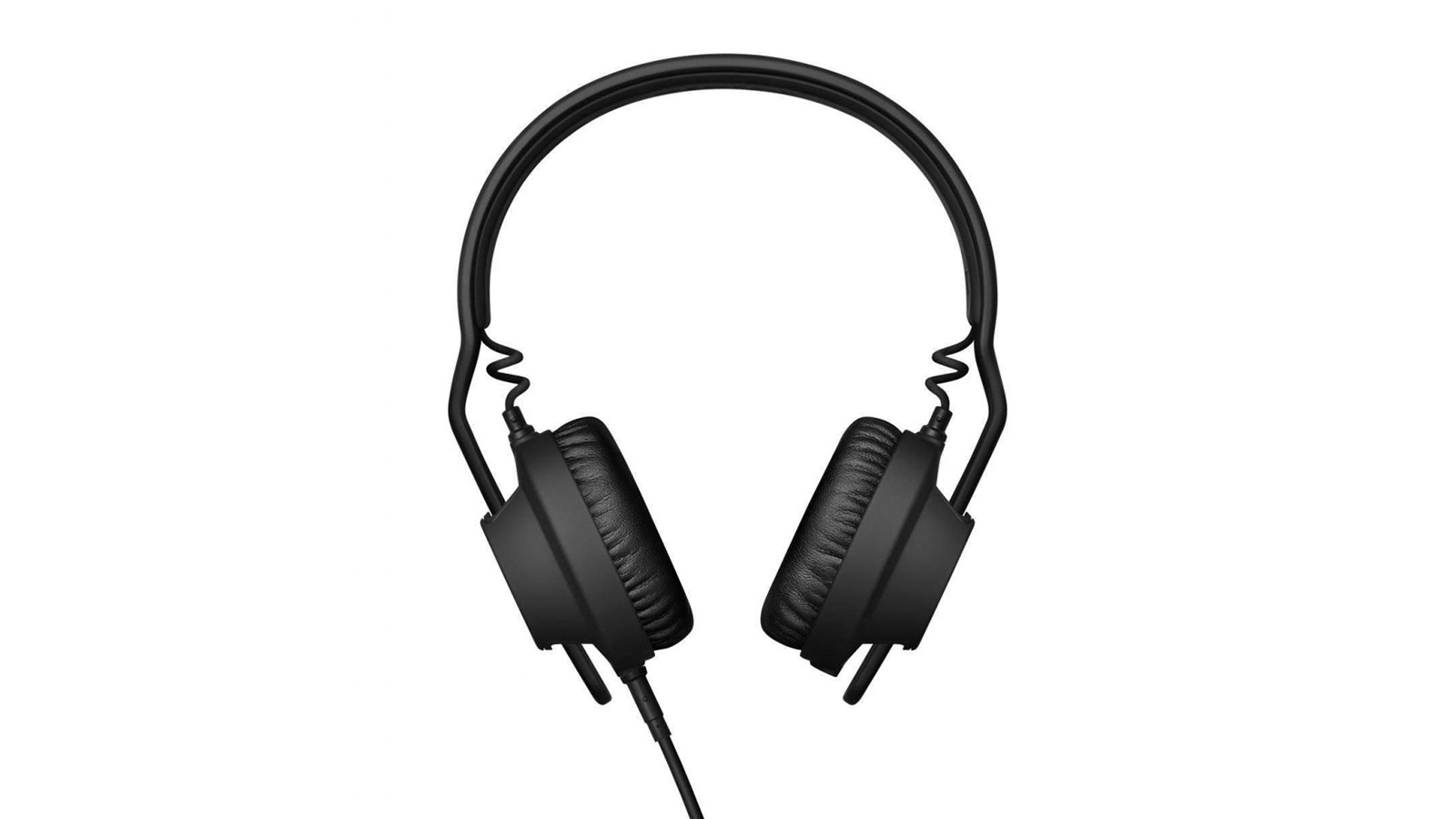
6. AIAIAI TMA-2 DJ
Our expert review:
Specifications
Reasons to buy
Reasons to avoid
Danish brand AIAIAI delivers a bit of Scandi design flair with its TMA-2 range. The real hook with this range comes in your ability to design your own dream setup. From the types of drivers employed to the headband and cable – everything is up for customising here, depending on your requirements.
There are, however, a selection of models available as ‘presets’ if you’re not interested in the process of choosing your own. One such design is this DJ-centric setup, which is spec’d for powerful, bass-heavy sound and includes a robust, reinforced headband.
Higher up the price range, AIAIAI has also recently released the new TMA-2 Studio Wireless+ headphones, which are created in collaboration with Richie Hawtin. These boast ‘ultra-low latency lossless’ Bluetooth audio, although come in at nearly twice the price of the standard DJ configuration – and we’re not convinced it’s worth shelling out on wireless functionality in the DJ booth.
Best for live use
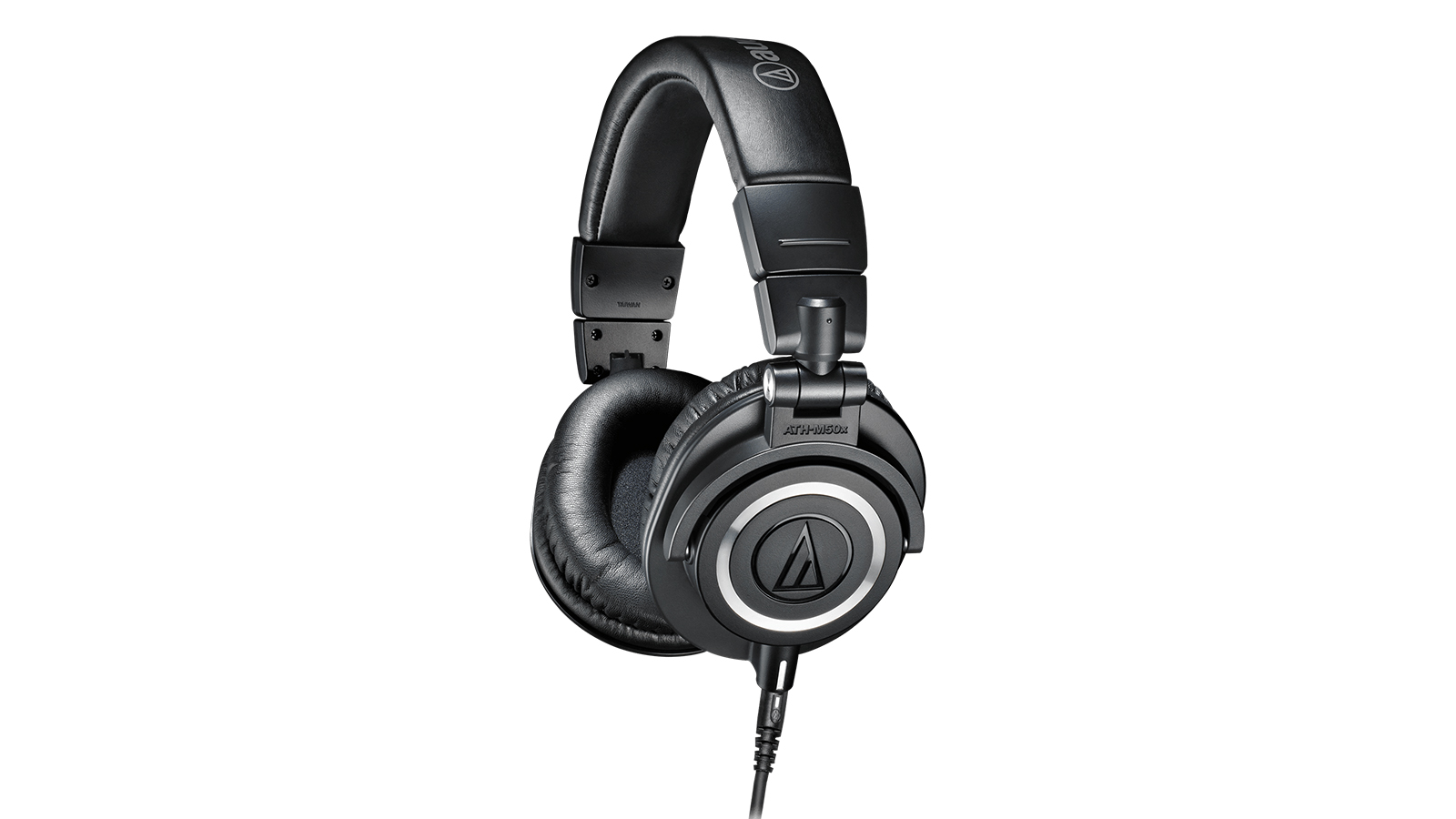
Specifications
Reasons to buy
Reasons to avoid
Audio-Technica is well-respected in the DJ world, and the ATH-M50x’s do a great job of showing why. They’re well-built headphones, for a start, which look like they could survive years of service before they give out. We also liked the over-ear design which, when combined with the closed back, means isolation from external noise is great.
There are a couple of DJ-specific tricks too, like swivelling earcups and interchangeable cables, making for a solid mid-range choice all round.

"The M50x may be more expensive than the outgoing M50 (which is now under £100) but it's worth it. And if £100 is your limit try the M40x or bag an old M50." Read the full Audio Technica ATH-MX50 review
Best for balance
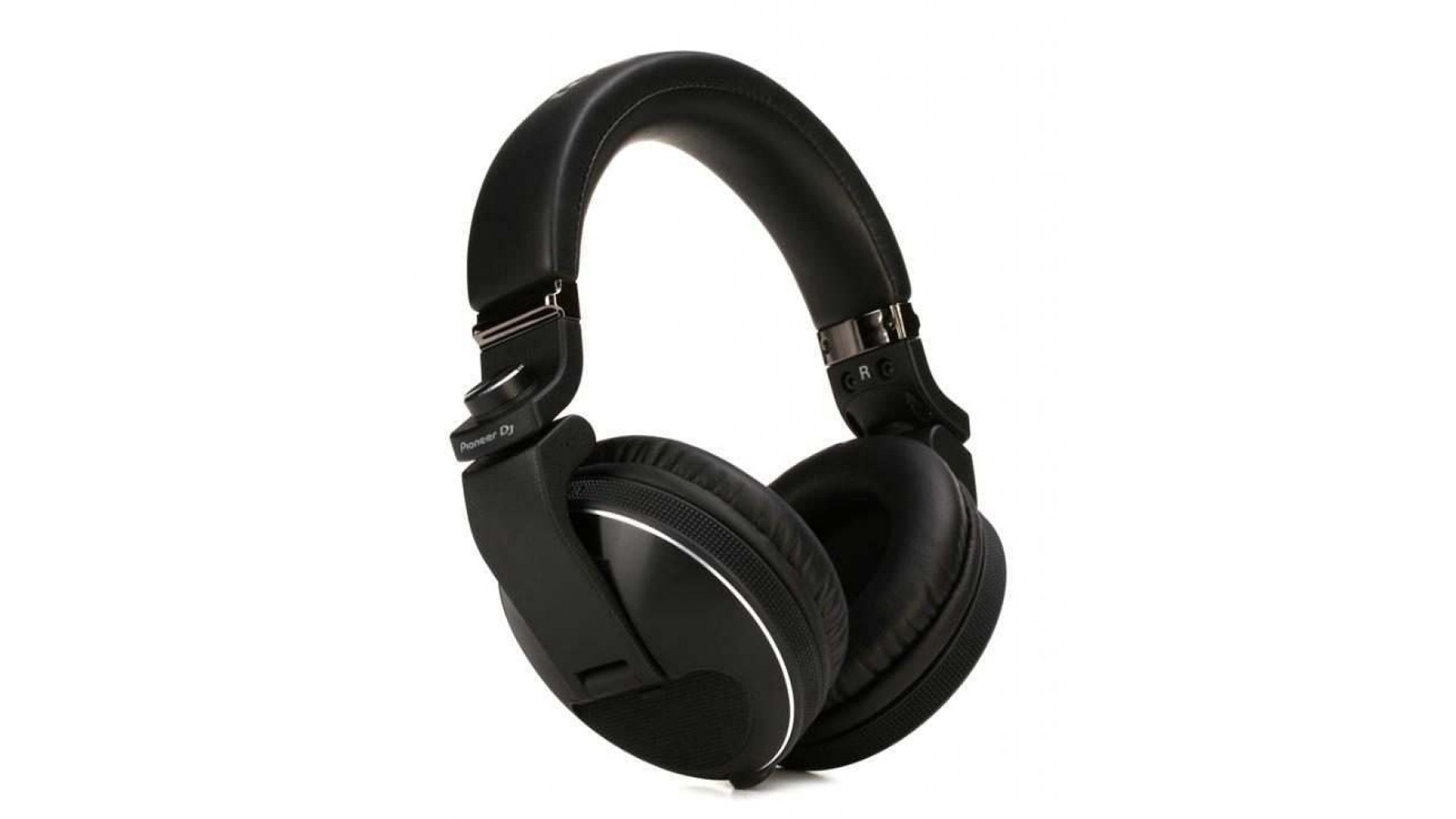
8. Pioneer DJ HDJ-X10
Our expert review:
Specifications
Reasons to buy
Reasons to avoid
Another big brand in the DJ world, Pioneer has as much heritage as anyone so you’d assume its upper-mid range headphones would be good. You’d be right too! The Pioneer DJ HDJ-X10 are over-ear closed back headphones with what Pioneer claims is the widest frequency range in any DJ-specific headphones. Quite a claim, but we can attest to the great listening experience we had from them. The highs were high, the lows were low, and everything was a balanced and clear as you’d hope.
Pioneer also says the HDJ-X10 were subjected to ‘military grade’ testing while they were being developed, so you’d imagine they’d stand up to small to medium sized venue use pretty well.
Best wireless
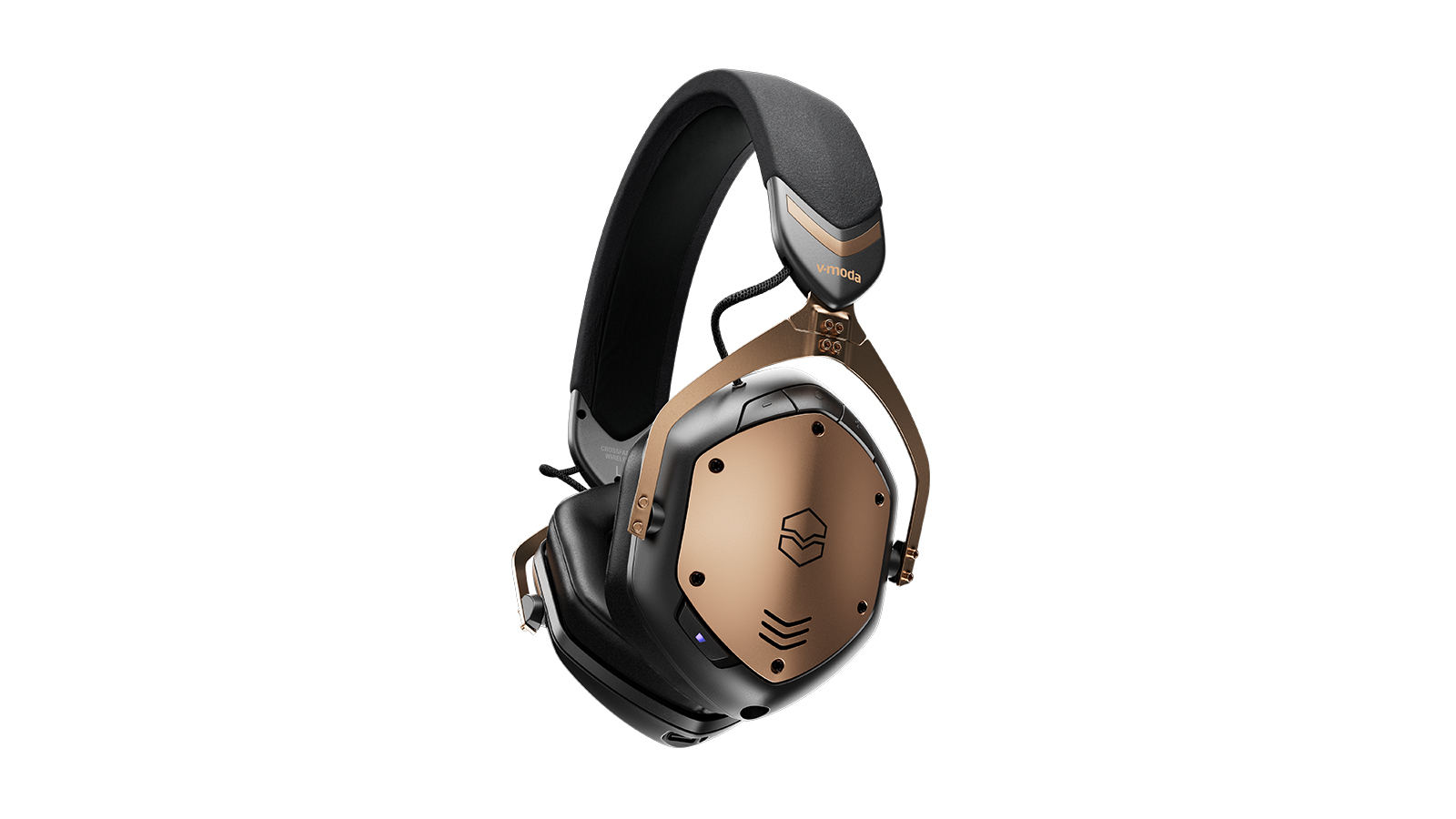
9. V-Moda Crossfade 3 Wireless
Our expert review:
Specifications
Reasons to buy
Reasons to avoid
The Crossfade headphones, from Milan-based brand V-Moda, provide a ‘best of both worlds’ approach to headphone monitoring. On one hand, the Crossfades can be wired to provide zero latency feedback, and a wide frequency range, meaning they have the reliability needed for tight beat mixing or music production. On the other hand, they boast Bluetooth so can double up as ‘regular’ headphones for the walk to and from the studio. Ideal.
The Crossfade range has recently hit its third iteration. Changes include a variety of new colour options and a slightly punchier sound. The headline feature of Crossfade 3, however, is the improved wireless battery life, quoted as up-to 30 hours from a single charge.
There are specialist headphones on this list which, for a similar price, offer a purer DJ experience, and - as stated in our buying advice below - we’d question how useful Bluetooth connectivity is for purely DJ purposes. However, for the price, Crossfade 3s give you a stylish and high-quality set of cans that can handle duties both in and out of the booth.
Best in-ears
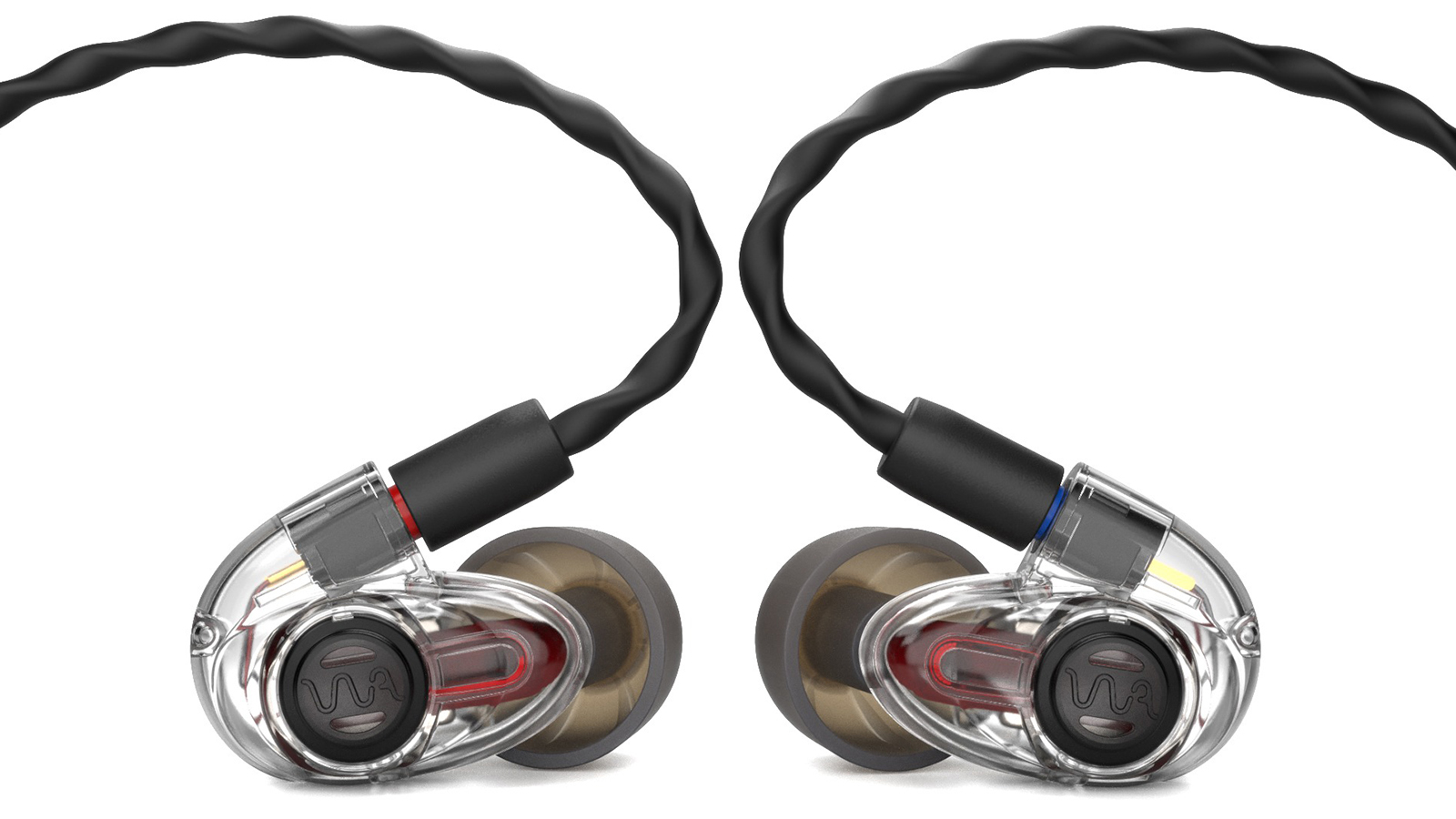
Specifications
Reasons to buy
Reasons to avoid
Typically, in-ear monitors (IEMs) excel at completely blocking you off from the outside world. They are traditionally used by musicians, so they can hear what their fellow performers are playing and ensure they stay in time, tune and sync with each other. And, while the Westone Audio AM Pro X 10 IEMs perform this task admirably, they also warrant inclusion on the list thanks to their passive ambience functionality. Essentially, thanks to some clever filtering, the AM Pro X 10s do let in some noise, so you get the best of both worlds. A clear feed of what you’re playing, and then an idea of how the crowd is hearing it too.
We loved the included carry case, and the different ear-tips, which meant we could find the perfect fit for our ears. The cable is fairly short, so you might need to factor in an extension, but otherwise, there’s a lot to like here - especially if you’re yearning for an end to spending your evenings with bulky over-ear cans on.

"For the price, the Westone AM Pro X10 monitors are in a field of their own. Passive ambience and high-quality build make for a compelling overall package." Read the full Westone AM Pro X review
FAQs
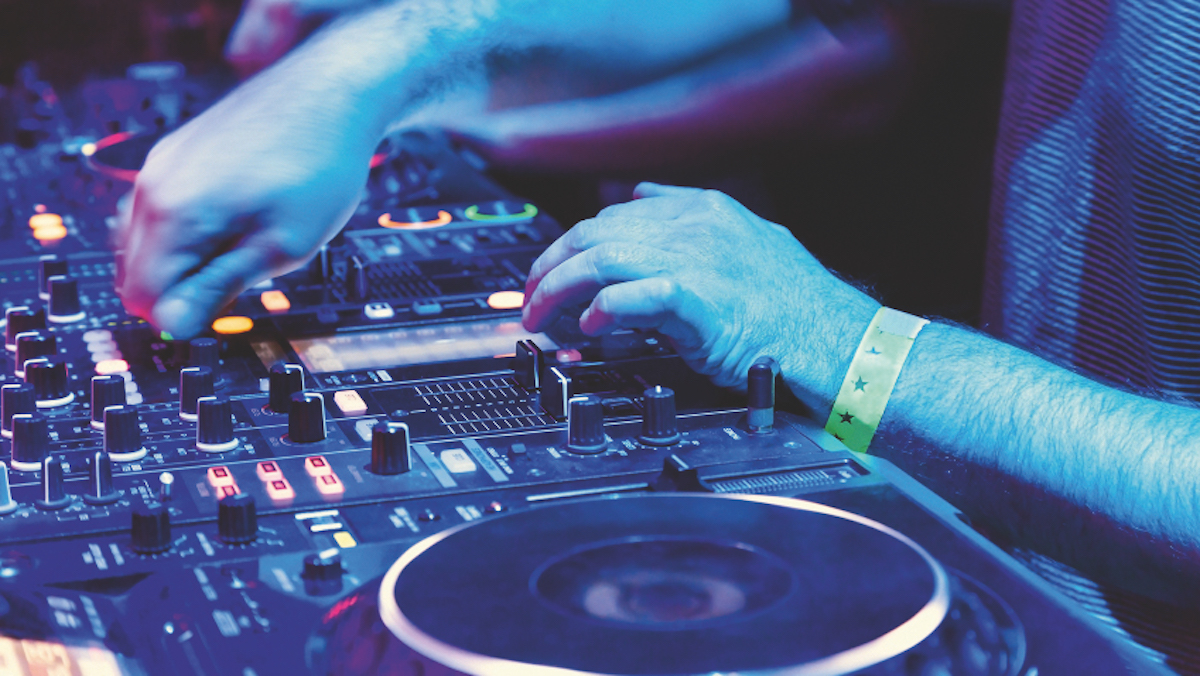
How do I choose the best DJ headphones?
MusicRadar's got your back
Choosing a pair of DJ headphones is a different process from choosing, say, studio or home listening headphones, as they are engineered for differing requirements. For example, the most important quality of studio headphones is the ability to reproduce the sound as accurately as possible to aid in mixing and mastering. In contrast, many headphones designed purely for music listening will flatter the sound, boosting the bass or applying a ‘loudness’ EQ to increase its impact.
But when you’re DJing, you’re not focused on the subtle nuances in the music for making minor EQ adjustments, nor are you reclining and enjoying that rich, deep bass from a new track. DJs have different headphone requirements. They need to be able to hear the mixer signal clearly above the noise of large club sound systems and the crowd, so the quality of the signal and the effectiveness of the earpieces in reducing external noise should be central considerations in your buying decision.
How important is design and durability?
When considering your DJ kit, the build quality of your headphones is a crucial factor. Your headphones are likely to be the most used item in your kit. They will accompany you to and from your gigs, be adjusted all night, taken on and off, and then stuffed in your bag at the end of the evening. Therefore, they need to be hardwearing. This knowledge empowers you to make an informed decision.
Remember, cheap headphones are always a false economy. Investing in a decent set of headphones is a decision you won't regret in the long term. Just make sure you don’t leave them in the booth after your gig!
Comfort is a major consideration for DJ headphones that might not seem immediately obvious. You’re going to be wearing your headphones for hours on end, often in hot, sweaty conditions, so getting a pair that fits well and is as comfortable as possible is not just important, it's vital. Your comfort matters.
The headphones in our guide range from larger models that fit completely over the ears to smaller headphones that sit on rather than over the ears (called, helpfully, ‘over-ear’ and ‘on-ear’ headphones). There can sometimes be a pay-off between the comfort offered by lightweight on-ear headphones and the sound isolation capabilities of heavier over-ear headphones, which should be considered, too.
Do I need wired or wireless DJ headphones?
While home listening headphones are increasingly going wireless and incorporating Bluetooth technology over traditional wired connections, it’s best to avoid using wireless headphones for DJ mixing. There is the very real issue of connections dropping out or devices running out of charge mid-set, and while latency is becoming less of an issue, it does still exist, and any latency will make beatmatching super difficult.
Unless you’re in the 1% of performing festival DJs who run around the stage during their set, then you’re not really going to need Bluetooth headphones for DJing. Until wireless headphone tech is as dependable as wired, it’s not currently worth the extra cost and possible latency and connection issues just to make your DJing cable-free.
How we test DJ headphones
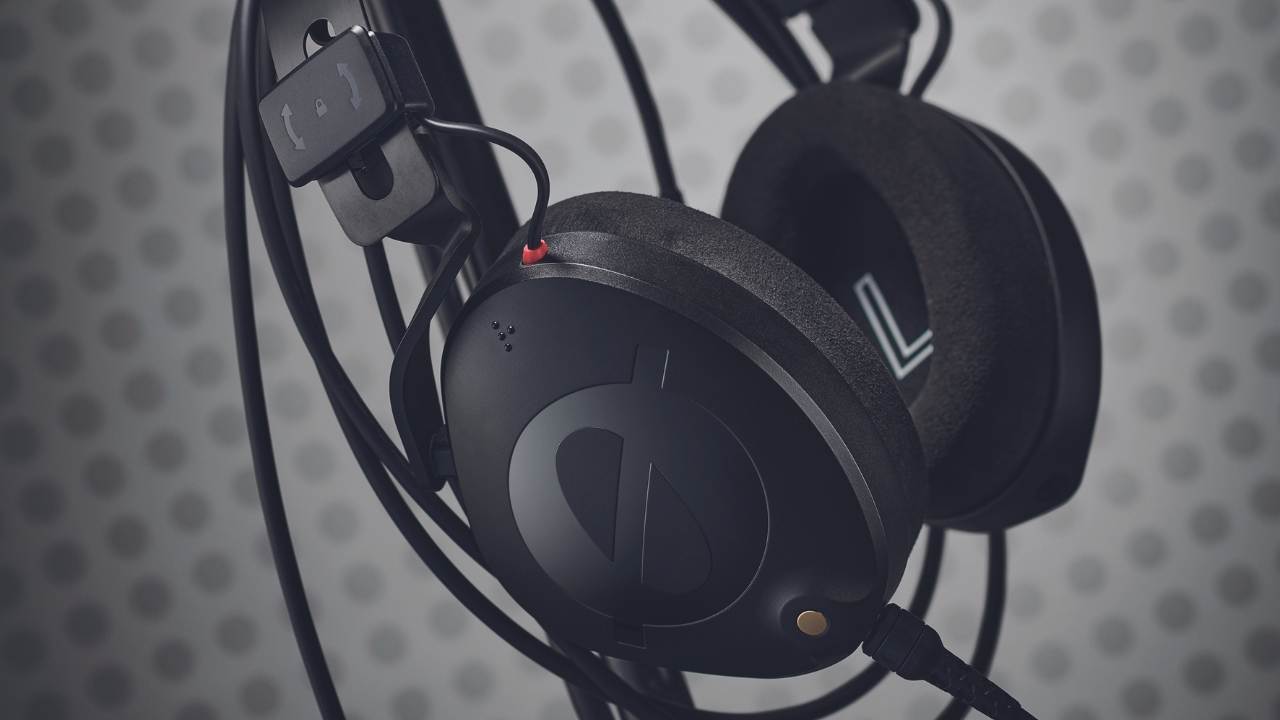
Our guide to the best headphones for DJs is based on the experiences of our team of writers and reviewers. What we look for in a set of headphones for DJ use isn’t exactly the same as the way we’d test a set of headphones for studio or home use. Of course, it comes down to sound quality in part; we’ll use each set of headphones to play tracks we know well so we can hear the nuances and differences. In the case of DJ headphones we’ll focus particularly on electronic, pop and dance music.
As much as the sound though, the criteria for testing a set of DJ headphones comes down to how they feel in use. A good pair of cans for mixing need to feel comfortable but reliable. How heavy are they when worn around the neck for long periods? How easy is it to get them on and off your ears when beatmatching? Do they feel sturdy enough to stand up to regular gigging and if anything breaks, how easy are parts to replace?
Find out more about how we test music gear and services at MusicRadar.
Why you can trust us
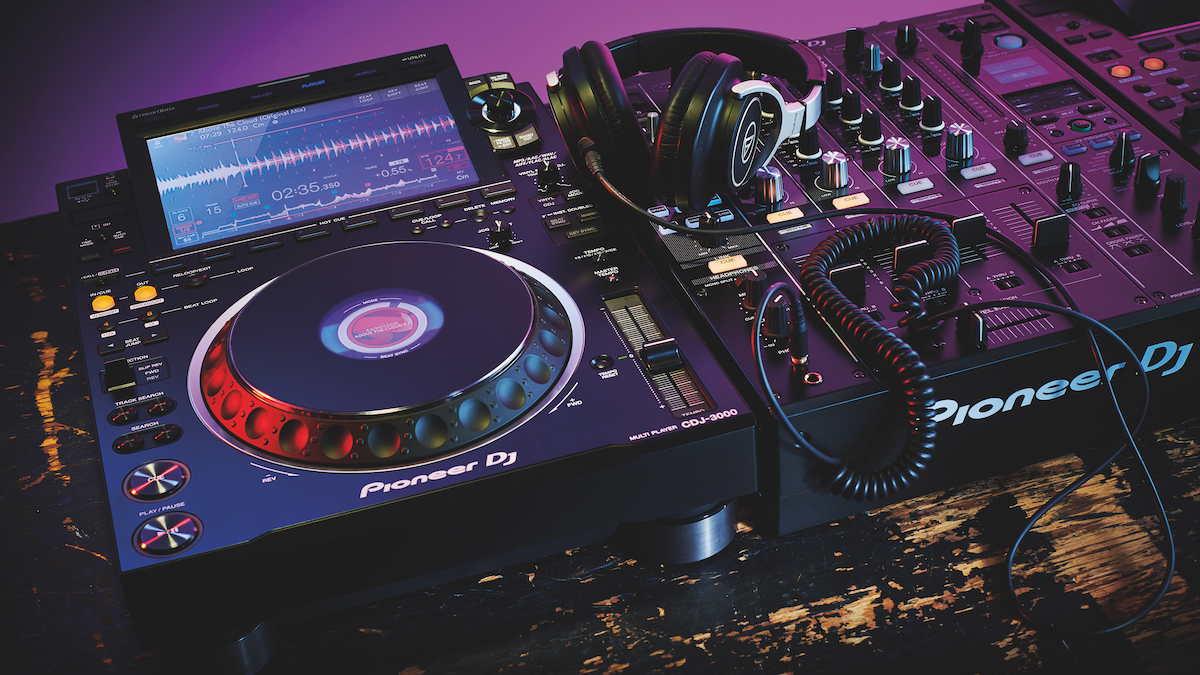
✔️More than 9,500 reviews on-site
✔️Over 17 years of product testing
✔️ 2.9 million monthly users globally
With more than 17 years of experience, MusicRadar is the premier music-making website in the world. Run by musicians for musicians, we offer expertly written gear round-ups and high-quality, authoritative reviews by an extensive team of highly experienced industry professionals.
We also interview world-renowned musicians and stars about their creative processes and the nuts and bolts of their gear and technique. This gives fans an insight into the actual craft of music-making that no other music website can.
But that's not all. We also provide excellent tuition, from bite-sized tips to advanced techniques and guidance from recognised musicians.
As well as delivering high quality written reviews and features, we also produce a wealth of video content on YouTube. MusicRadarTV is where you'll find all of our access-all-areas interviews, hot gear demos and exclusive video lessons.
Below you'll find more information on the authors of this guide.

Chris Corfield is a journalist with over 12 years of experience writing for some of the music world's biggest brands including Orange Amplification, MusicRadar, Guitar World, Total Guitar and Dawsons Music. Chris loves getting nerdy about everything from guitar and bass gear, to synths, microphones, DJ gear and music production hardware.

I'm the Managing Editor of Music Technology at MusicRadar and former Editor-in-Chief of Future Music, Computer Music and Electronic Musician. I've been messing around with music tech in various forms for over two decades. I've also spent the last 10 years forgetting how to play guitar. Find me in the chillout room at raves complaining that it's past my bedtime.

Harold Heath is a UK music writer and author. A DJ since the late 80s, Harold also produced a few hundred singles and remixes and two artist albums, and worked as a performer, ghostwriter and music-technology teacher. His first book Long Relationships: My Incredible Journey From Unknown DJ to Smalltime DJ was published in 2021.
Related buyer's guides
- More DJ gear: these are the best DJ mixers available today
- The best DJ controllers from Serato, Traktor, rekordbox and more
- And check out the best DJ turntables
- Upgrade your rig with the best DJ speakers
- Best DJ laptops: PC and Mac options for the booth and beyond
- Our pick of the best gifts for DJs
Get the MusicRadar Newsletter
Want all the hottest music and gear news, reviews, deals, features and more, direct to your inbox? Sign up here.
Chris Corfield is a journalist with over 12 years of experience writing for some of the music world's biggest brands including Orange Amplification, MusicRadar, Guitar World, Total Guitar and Dawsons Music. Chris loves getting nerdy about everything from guitar and bass gear, to synths, microphones, DJ gear and music production hardware.